Takeshi Fukunaga was the only Japan-born director to direct episodes on two of the most critically acclaimed shows in recent years: Shogun and Tokyo Vice. His latest work, Ainu Puri, is a far cry from those big budget spectacles. A spiritual sequel to his second feature, Ainu Mosir (2020), this documentary chronicles the lives of the indigenous Ainu people of Japan’s northernmost islands.
In the documentary, we meet Shigeki, who charts his own path in practicing Ainu Puri (the Ainu way) as a way to rediscover his roots in Shiranuka, Hokkaido. We watch as he navigates his day-to-day while trying to stay true to his traditions. We also bear witness to his attempts at passing down various aspects of the Ainu culture – including the art of salmon fishing – to his son, Motoki. We follow Shigeki and his family as they endeavor to live as Ainu – with all that it entails – in modern day Japan.
The Ainu’s story is one that is reminiscent of indigenous people in almost every part of the world: lost land, language, culture, and rights. It is a story that Takeshi Fukunaga captures with a journalistic eye and cinematic ambition.
We caught up with Takeshi Fukunaga at this year’s edition of the Tokyo International Film Festival where we spoke to him about his deeply moving and profoundly human documentary.
*The following interview has been edited for length and clarity.
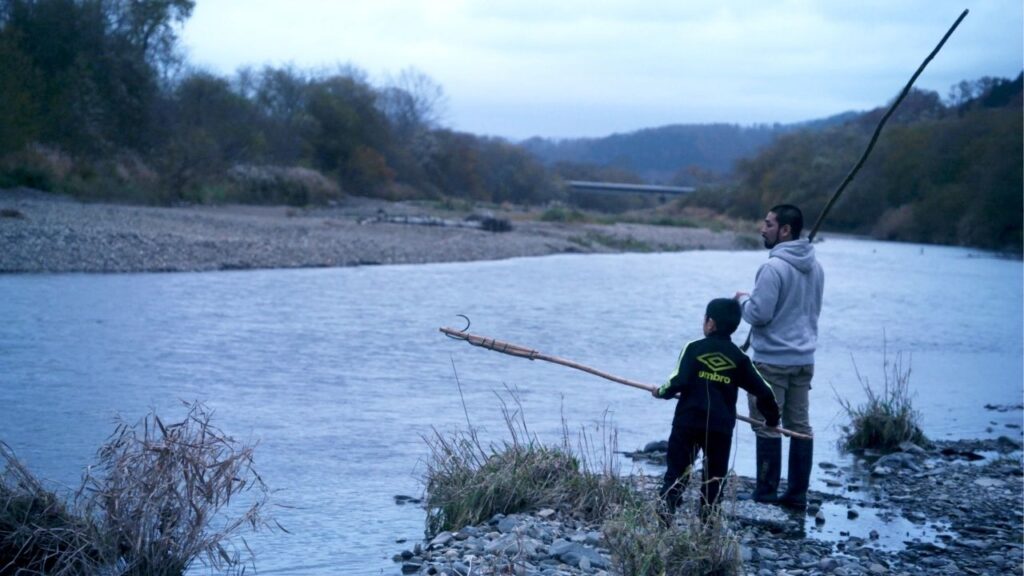
Umapagan Ampikaipakan: As a Malaysian, I knew very little about the Ainu before watching this documentary. How much awareness is there in Japan with regards to their story?
Takeshi Fukunaga: I can only speak from my personal point of view, but most people have recognized the term “Ainu,” and acknowledge them as indigenous people, but only few people know anything further. There was a very popular manga called Golden Kamuy, and that really helped introduce the Ainu to the general public. They know that there are these people in Hokkaido, and that they have their own culture, but there is still a lot of work when it comes to raising awareness and educating people.
UA: When did you first encounter this story and what made you want to tell it?
TF: I was born and raised in Hokkaido, so I was aware of the Ainu people. But there was no education at school about them. Just one or two sentences acknowledging their existence. I knew very little, and even though I had some Ainu classmates, we didn’t know how to talk about it. It was almost taboo. We didn’t know enough about our history, we didn’t know enough to be able to discuss it.
It was only after I move the the U.S. that I realized how little I knew. I felt ashamed. That’s how I started my own learning process. And it was making these films (both Ainu Mosir and Ainu Puri) that was a big education for me.
UA: Watching Ainu Puri made me think about the many uncomfortable parallels between the Ainu people and the Native Americans, and even the indigenous people in Malaysia. Watching this can’t help but change you. What does making something like this do to you? How did it change you?
TF: First of all, I now have an extensive knowledge about the Ainu. I have a good sense of who they are and the struggles they face in this day and age. But I think the biggest lesson for me was the sensitivity of making a movie about Ainu as a non-Ainu. It is something you can apply to just about anything, whether it’s an immigrant story, or one about the Korean-Japanese population, or any of the minority groups that are still very much underrepresented in Japanese society today.
I truly believe that art is something that can transcend those borders. That’s why I do it. That’s why I make films in the first place. But learning about that sensitivity was the biggest lesson for me as a person.
UA: Which brings me nicely to my next question which was about the mental notes you made while making this movie. Was there a list of things that you knew you didn’t want to do as an outsider to the Ainu?
TF: The very reason I made my second feature, Ainu Mosir, was to update the representation of Ainu in film.
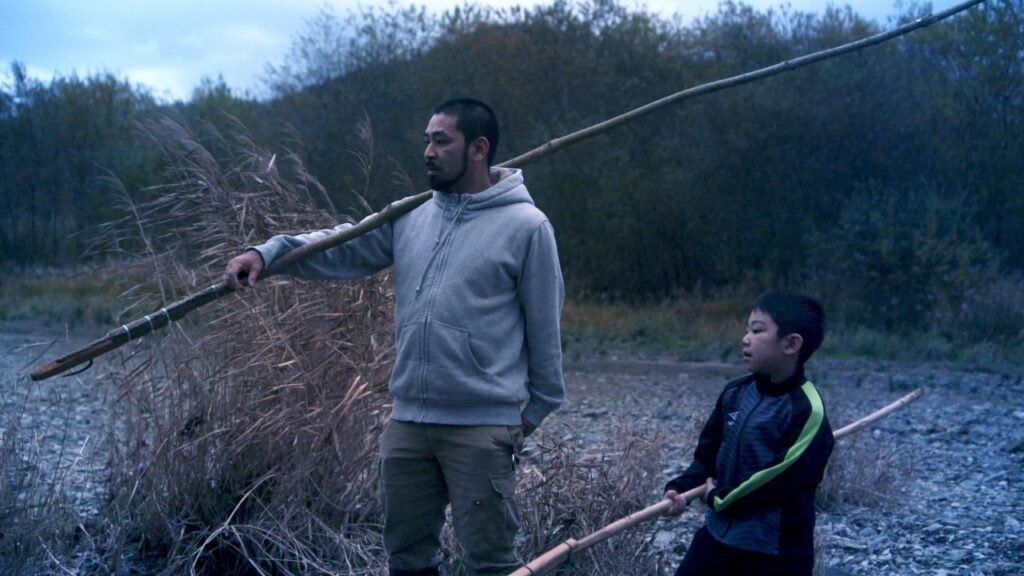
UA: Which was the first time that an all Ainu cast was in a movie together?
TF: Yes. That is correct. It was the first time in history that there was an Ainu movie starring Ainu people. They have had very tiny roles in the past. But this is the first time it’s happened in a non-documentary film.
And so going into that, I was very careful not to impose my preconceived notions about Ainu, because the last thing I wanted to do is to enhance the stereotype.
That was my biggest mental note.
But despite knowing that, there are still many, many pitfalls that you can easily fall into. And it’s not just with the Ainu, but when you portray anyone who isn’t you. There is a danger in imposing your own ideas about who someone is. So even though I was careful while shooting it, in the editing room I realized that there were some choices that weren’t as fair as I wanted them to be.
UA: So as a documentary filmmaker, did you go into this with a plan, or did you just do in, listen, and see where the story took you?
TF: Well we had some plans. At least as far as what we wanted to focus on and prioritize over other things. And that was to humanize them and portray them for who they are, as they are, instead of something that is different or unusual.
As far as the story goes, I didn’t know what the core narrative was going to be when I started shooting. But as we went along I realized that this was going to be about that father/son relationship and how he passes on, not only Ainu culture, but his own knowledge as a person.
UA: I think that whole sequence of him taking his son fishing for the first time was really incredible. And the one thing that stood out for me was how cinematic your documentary was. A lot of documentaries don’t feel very cinematic. Can you talk to me about you process and why it was important for it to look the way it did?
TF: I agree. I feel like many documentaries focus on capturing the moment and the message, but not so much about how to capture it. And me and my cinematographer (Eric Shirai) had some discussions about how we wanted to make it as cinematic as possible without altering reality too much. The license we gave ourselves was to ask them to do something, or redo something, or wait until we had the camera in position. As long as we weren’t asking them to do something they wouldn’t ordinarily do. We weren’t shy about asking them to do something instead of just following them around.
UA: When you’re making something like this, I was wondering if “authenticity” is something that you strive for? Or is it irrelevant?
TF: Not so much. I don’t know really. Once we are there, as a camera crew, we are already changing their reality. They will say and do things in a different way from what they would without the presence of a camera. We can try and make it as authentic as possible, but at the same time it’s not reality, it’s a film.
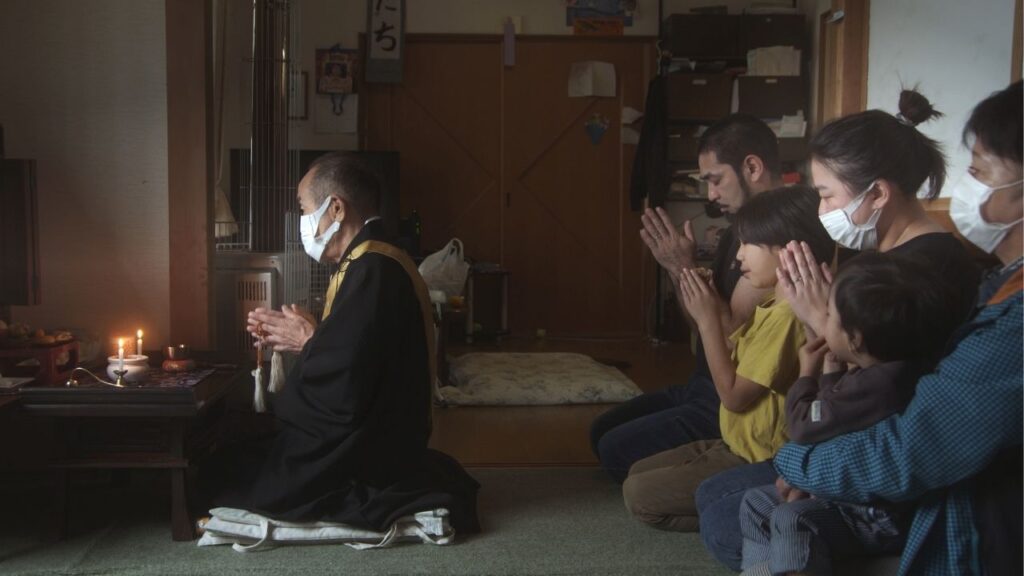
UA: Questions of identity are very, very difficult to ascertain. In all of the time that you spent with the Ainu, did you get a better understanding of how they feel about national identity versus cultural identity? Where do they see themselves with regards to being Japanese?
TF: That’s a very tough question. First of all, seeing themselves as a Japanese person, or citizen, or anything Japanese, differs from individual to individual. A lot of it has to do with how they live, and how they speak, and the customs they grew up with. It isn’t something patriotic or nationalistic. It’s just the natural environment that they became most familiar with.
Ainu cultural practices are not a part of their daily life at this point. They do it because they want to keep it. But it’s not a part of the ecosystem of their lives. The practices, the prayers, the hunter/gatherer lifestyle is so far away from how they live now. So they have to make a serious effort to keep that culture alive.
So in a way, they choose to be Ainu. They are born with those biological and physical roots. But as far as a psychological identity, or cultural identity, they have to make an effort, unlike a regular Japanese person.
UA: There seemed to be a conscious effort on your part to not make this feel like an activist documentary. But were you ever tempted to be a little more political?
TF: No. Whether it’s fiction or documentary, for directors to use the medium to say what they want to say, treads a thin moral line. For me to make a political statement using this documentary didn’t feel right. I have my opinion, but the best I can do is to to be a medium for Shigeki to say what he wants to say. But if I pick and choose, and then edit the film to send some strong political message, that would not be who he actually is. The best thing I can do is to show people his position.
UA: I have to talk to you a little bit about your other work as well. Could you talk to me about how you maneuver between something like Shogun and Tokyo Vice and Ainu Puri. Because I’m assuming both those things are so totally different, right?
TF: Yeah. Very different. Very different. First of all, those other things let me pay my bills. Unfortunately, independent films don’t really pay the bills for me. And I’m so grateful for that financial stability.
Those big productions did help me grow as a director. On those sets, something always comes up. And when something comes up, it’s totally different when you have a 20 person crew or when you have hundreds of people waiting for your decision. Every minute costs a lot more money and it’s very nerve-wracking. So having done that has made me a lot calmer in those emergency situations. I’m a lot quicker when it comes to making decisions now. It was a great learning experience.
But also, my role in those productions is very different. Even as a director, you are basically serving the vision of the showrunner. And so working in that situation made it clear to me why I had to do these smaller, independent productions for myself. Otherwise why do this?
I am very thankful. I enjoy being able to go back and forth between two very different worlds. And I think each one gives me a very objective view of the other.

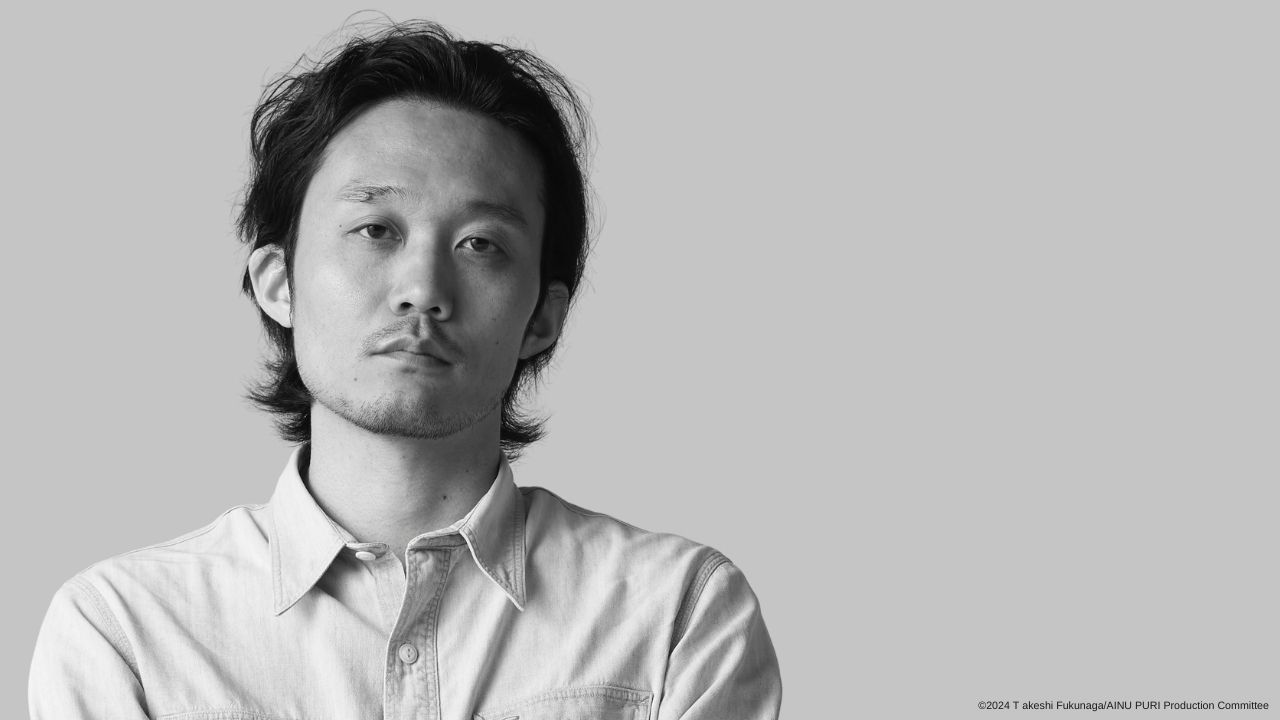
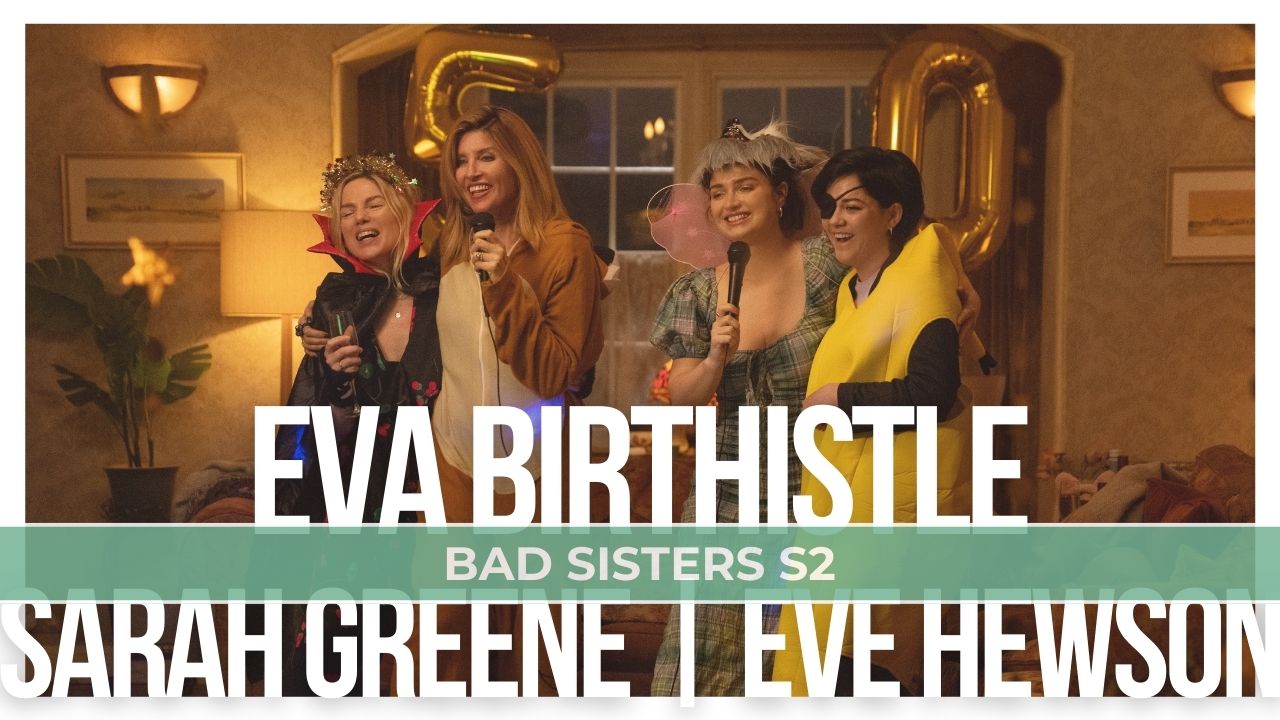
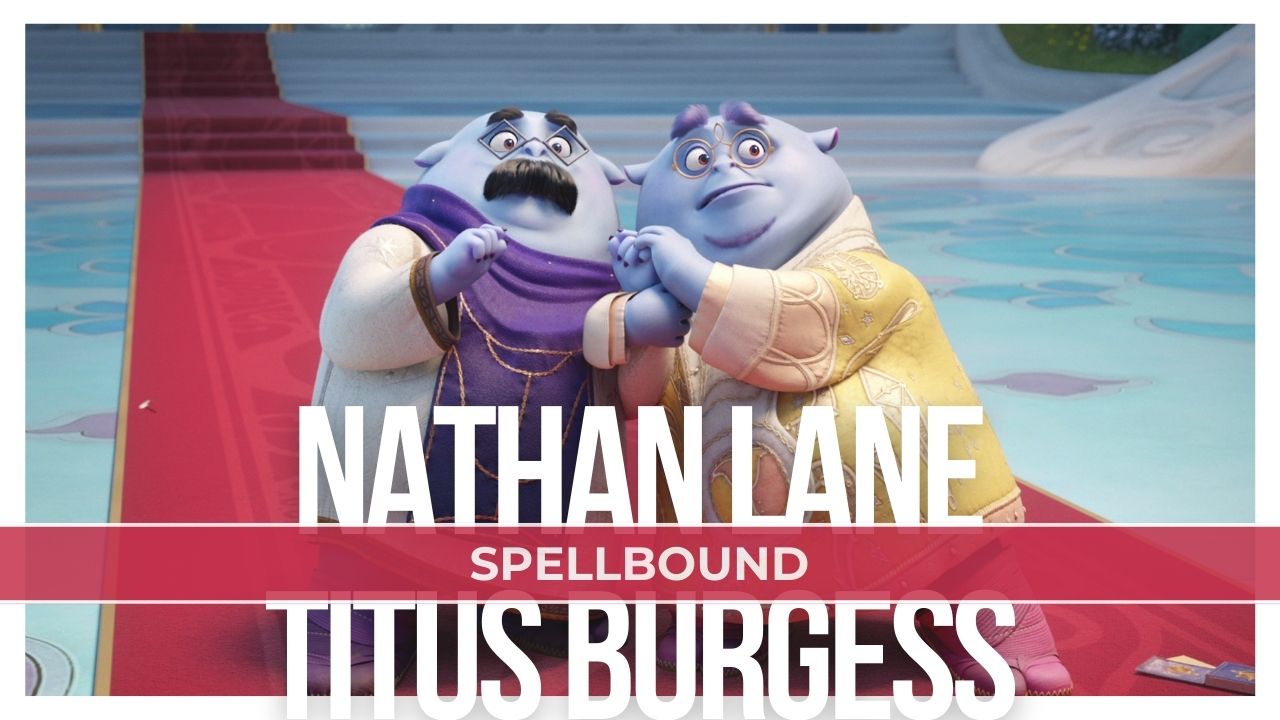
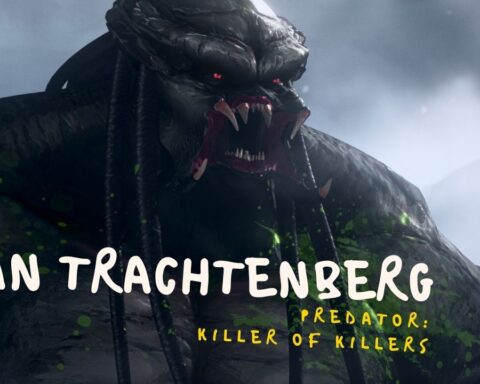

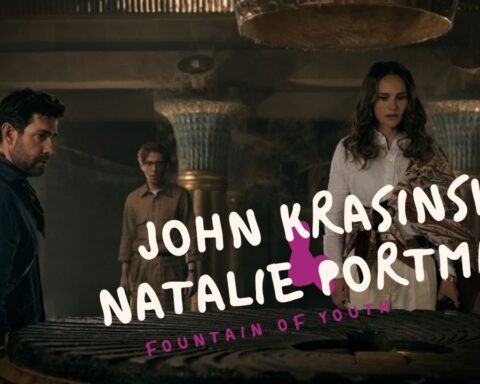
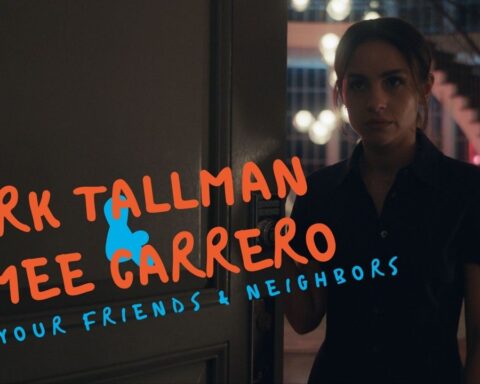
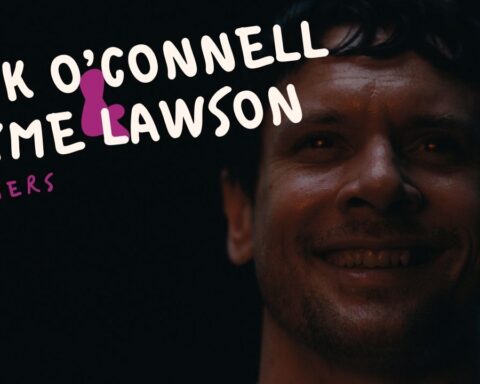
Follow Us